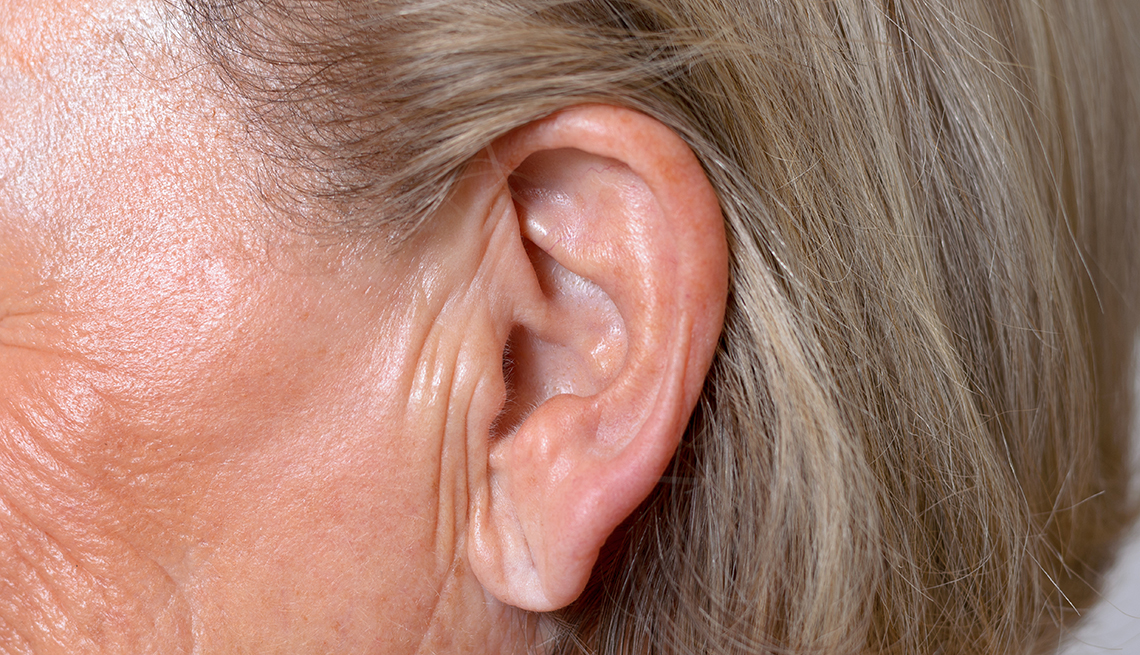http://www.aarp.org/health/conditions-treatments/info-2017/franks-sign-stroke-risk-fd.html?cmp=EMC-DSO-NLC-WBLTR---MTEST-071417-F1-2268265&ET_CID=2268265&ET_RID=12748640&encparam=6sDWLkOCvMbAliSHH3fI+lmKMME1NVqH0iSD/KcZOT4=
A deep crease could be cause for concern

Getty Images
Deep diagonal creases in the ear are known as Frank's sign.
The condition, known as Frank’s sign, is a diagonal earlobe crease that was found to have a relationship to risk of stroke. The researchers, who are based in Israel, studied 241 patients who were hospitalized with a stroke and found that 79 percent had Frank’s sign.
AARP Membership: Join or Renew for Just $16 a Year
Additionally, 66 of the patients who suffered the most common type of stroke,
acute ischemic (where a blockage cuts off blood supply to the brain),
had previously experienced a heart attack. In this group, almost 9 out
of 10 had the Frank’s sign marker.
From these findings, researchers concluded that Frank's sign could predict ischemic cerebrovascular events (strokes) and that patients with classical cardiovascular risk factors had the ear crease in higher numbers.
Frank’s sign is named after Sanders T. Frank, M.D., who discovered it in the 1970s while examining a patient with heart disease. The crease may signal poor blood supply to the earlobes, or could be a symptom of weakening in the blood vessels. It could also be related to aging.
If you have a deep crease in your earlobe and are concerned about your cardiovascular health, talk with your doctor about risk factors to see if additional tests are warranted.
From these findings, researchers concluded that Frank's sign could predict ischemic cerebrovascular events (strokes) and that patients with classical cardiovascular risk factors had the ear crease in higher numbers.
Frank’s sign is named after Sanders T. Frank, M.D., who discovered it in the 1970s while examining a patient with heart disease. The crease may signal poor blood supply to the earlobes, or could be a symptom of weakening in the blood vessels. It could also be related to aging.
If you have a deep crease in your earlobe and are concerned about your cardiovascular health, talk with your doctor about risk factors to see if additional tests are warranted.
No comments:
Post a Comment